- Words Solly Warner
- Photography Pip Bourdillon
- Styling Bryony Hatrick
- Grooming Jacinta
British actor and ‘Industry’ star, David Jonsson, talks the psychology of a trader, looking for human beings to play and digging for truth.
Growing up in London, David Jonsson’s turning point came when the young actor was offered a scholarship by none other than Warner Bros to attend the Royal Academy of Dramatic Art (RADA). Having graduated from the prestigious acting school in 2016, David balanced his early acting career between West End performances and primetime TV appearances, rubbing shoulders with the likes of David Tennant and Joe Dempsie.
Most recently, however, David struck gold with a lead in one of 2020’s most talked-about shows, ‘Industry’. The HBO/BBC banking drama catapulted David into the spotlight and served as somewhat of a breakout role for the rising star.
‘Industry’ sees a group of ambitious twenty-somethings start life at a top-tier investment bank in London. One of these recent graduates is Gus Sackey, played by David, who along with the other grads, faces countless high-stress days on the confrontational office floor of Pierpoint & Co.
As an Oxford graduate and Old Etonian, Gus garrulously assumes that his educational privileges will carry him to success, but the ambitious young man is in for quite the awakening and has to consider if he will do whatever it takes to secure a bright future.
With it’s first episode directed by ‘Girls’ creator, Lena Dunham, ‘Industry’ swiftly already gained critical acclaim for delving into subjects such as drug use, race, sexuality, gender and class, with David delivering an undeniably truthful portrayal of a go-getting young graduate. The show’s edge-of-your-seat appeal was further supported by writers Mickey Down and Konrad Kay, former bankers themselves, who knew exactly how to craft a work-consumed world through their own experiences.
Notion caught up with David Jonsson to chat about his experience filming ‘Industry’, the biggest challenges of working in the theatre, the exciting projects he has lined up over the next few months and much more.
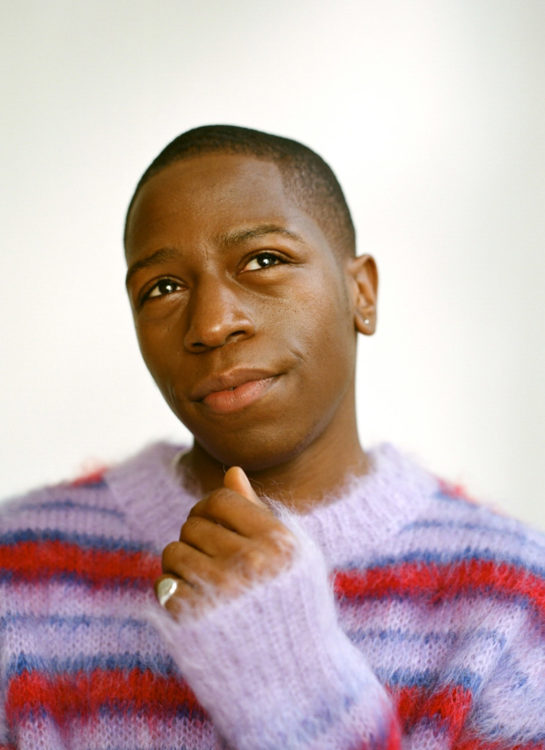
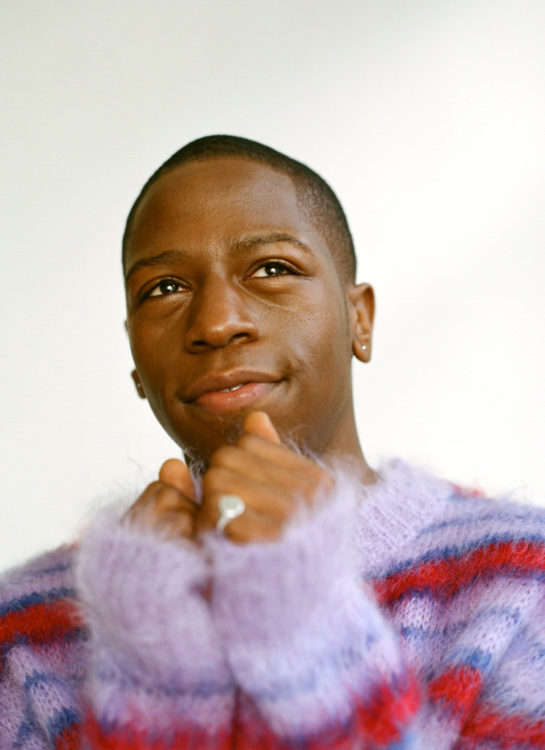
First of all, I would just like to congratulations on the success of ‘Industry’. I’m sure the time that’s passed from getting the role, to filming, to now has all been a bit wild. How does it feel for you now that the show is out, and people have watched it?
Thank you. I don’t know. It’s still a weird feeling because I almost still can’t believe that anyone’s even watched it. You spend six months filming in rural Wales, and then you go through Covid and a lockdown and then you come out of it and people are like, loving on the show. It’s a dope feeling. It’s special.
I’ve seen that you’ve had positive feedback from some real bankers. Did that help to really validate your performance?
Listen, I try not pay too much attention to what people say, not in a weird way, just because there’s so much opinion out there nowadays. As an actor, as an artist, I think you can’t pay too much attention. But you know, in saying all of that, you get the bankers reach out to you, but I’ve had people reach out to me on socials and just say, “you’ve reflected my experience on screen and I’ve never seen that before”. I mean, when you just try and do something that’s real and someone says that, there’s no greater feeling. In a way, you kind of feel like your job is done, if that makes sense?
Yeah, definitely. Do you think people have enjoyed seeing these workplace interactions even more so than usual? Because it almost feels like something nostalgic in this day and age?
What, people touching and stuff? [Laughs]
The office environment is what I’m hinting at.
I’m not sure because I haven’t spent too much time in an office myself. But I think people are connecting to that, and more so, I think it’s just people touching, being near each other. I think that’s something we all took for granted.

Diving a bit deeper into the show, what was it like to work with Lena Dunham and the rest of the cast? Were there any particular pieces of advice or notes that you received that really helped you take your role forward?
Well, first of all, it was a dream working with Lena. Like a legit dream. I say this a lot, but I think I saw ‘Girls’ for the first time when I was 12 or something like that, and it just blew my mind. I was like, “this is real life”. Then going from that to actually working with and meeting Lena, I couldn’t believe it and honestly, she’s the loveliest person, like just the loveliest, sweetest, caring person and even a better director. You know, we’d do takes, and she’d be like, “right let’s do this written” and then the next take is like “just do whatever” and we do takes that would just never ever be seen because they’re outlandishly wild. It was freeing as an actor to do that. Also, she mentioned a lot of stuff about how she was the same age as us when she did ‘Girls’ and she fully understands what it means to be vulnerable. Also, getting all the press that we would inevitably get, she understood. I just thought about it and you listen to someone like Lena who’s just an incredible woman and go, if that’s where she set the bar, you’ve kind of got to take it a little bit higher. So, that was really cool.
Awesome. Did the writers, Mickey and Konrad, help you with really trying to understand the mindset of a trader?
Yeah, 100%, 100%! If there was anything technical, we could always come to them. But also, the psychology behind the guys, which is a human psychology they move through. So, they were like encyclopedias for trading terms, but also a wealth of knowledge just as human beings working in this environment. The two can’t be exclusive. You need the two of them together. They were exactly that. Which I think is rare. I just love them to pieces.
You touched on it there a bit with the financial lingo and terms in the show. Did you always understand what you were saying? Or were there some lines where you were saying the words but not really knowing what was going on?
I knew everything I said.
Right answer.
[Laughs] No, you know what, jokes aside, I actually did. I myself a gold star for that because there’s something called Investopedia, where you can just literally Google it, find out and go, “okay, that’s what I’m saying.” But you know, the boys, Lena, everyone made it very clear where it was like, “this shows gonna have a lot of financial chat and you guys are going to have to deal with all that work. But it’s not about that. It’s about what this person wants here and what this person wants there.” So, with that said, it was just like a little bolt-on.
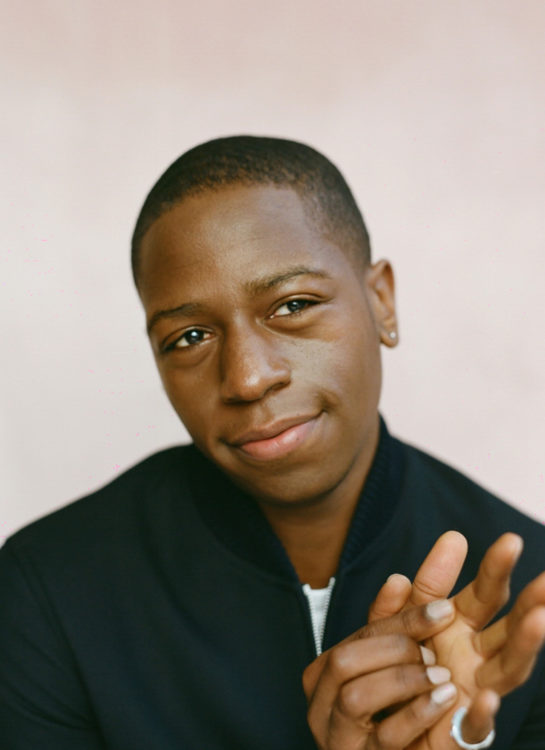

Moving towards your character specifically, what are some of the biggest differences between you and your character, Gus, and how did you go about tackling these variances?
I think part of the reason I was so drawn to him is because he just is different from me in every way. The way he thinks, the way he is, he’s just a gem of a character and I think on top of that, him being just so unique, he’s really real. He’s not dolled up for the sake of tokenism. He’s just the person that he is, and for me, that was ultra-important. As an actor, you’re constantly trying to find human beings to play and in my young career, you’re looking for that. To me, I thought he had that capacity, so I really tried to fight for him to be who he is and try to fit into the show.
What was important for you when showing the comparisons between Gus and Robert? They share quite a few similarities, but also have some quite key differences. What were you trying to convey with that challenging friendship?
It’s hard to talk about now because we still have got such a way to go with it. Season 2 and whatnot. It’s a constantly evolving relationship. But I think me and Harry [Lawtey], who plays Robert, we spoke a lot about their relationship because a lot of their relationship happens off-screen. You just kind of get the fact of how they’ve got there, or what that relationship means. I think, personally, that there’s definitely something really loving about their relationship. But also, you look at them and it doesn’t take a genius to work out why Rob might get one place quicker than Gus, even though their backgrounds are completely different, which is just an awesome juxtaposition, but a very real thing, that in other hands, you can easily gloss over it. But for me, I thought it was really important again, just because it’s real.
Your character has another complicated relationship with Theo. Are you able to share a bit of insight into what it was like to be part of LGBTQI+ representation, especially on screen?
Working with Will [Tudor], who is an awesome actor, again, you’re just digging for truth. I think for me, truth in that relationship was actually just dropping everything, Not putting anything on it. It was a real, vulnerable place to be, in a way because I was offering him a place of security, and he kind of knows who he is and he’s unapologetically himself. But then whenever it comes to Theo, it’s moving pieces always and he never quite knows where anything is still. He can never quite figure that out. Which actually, again as an actor, for me, I think I tried to put the pieces together sometimes and I realised quite quickly that it’s not going to work unless you’re just there. And Will was awesome for allowing that to just be. So, we played a lot, and it was awesome. It was a wonderful experience.

You’re also experienced within the world of theatre. So, I was curious to know, what are some of the biggest challenges when working in a place like the West End, compared to filming for a TV series?
Oh! It’s completely different. In my experience, so far, it’s worlds away. I think the only thing that’s the same is the search for truth. But beyond that, you’re playing to an audience of 800 and it’s different faces every single night, and they see one performance one way and another performance the next. Whereas with film or TV, you can do as many takes as you like [laughs] within reason. It’s just so different but I think either one of them are both gifts in a way because you get to exercise yourself as an actor in different ways, which for me is a good feeling.
So, is the theatre something you’re excited to explore further once it’s more possible again, in the near future?
Definitely. I think there’s nothing like theatre in a sense when it comes to the experience that you get from it on both sides. I’m a real big believer in, I guess, magic; you can experience something once. I’m quite curious with that. So yeah, I am looking forward to it when it’s more reasonable.
Everyone’s faced a lot of challenges this year and the past few months have allowed for some positive time away from usual busy schedules. Have you been able to spend your time elsewhere over the past few months? Discover any new interests or hobbies or has it still been quite full-on?
I think it’s still been a bit full-on if I’m honest and again, I’m not complaining. I’m blessed. But nonetheless, it does mean you can pick up the phone and call someone and just check-in. Whereas there’s always an excuse to not do that. Now, either way, you can kind of do that and I think that’s something that’s really refreshing and something that I’ll stick with.
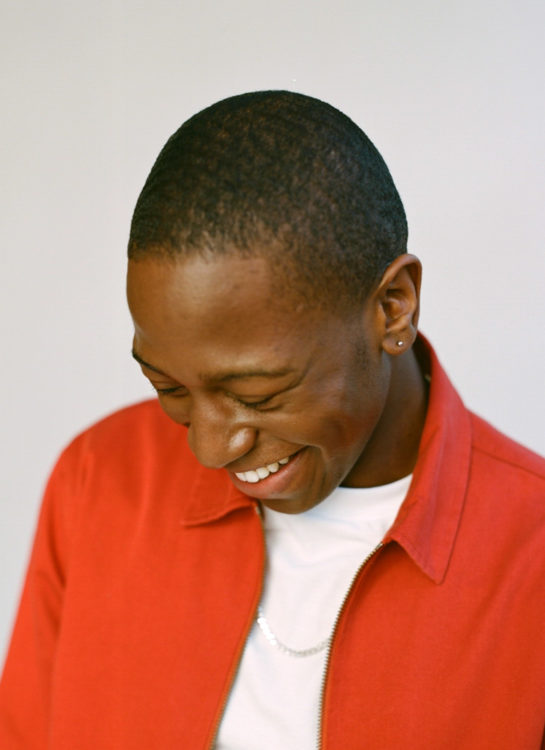
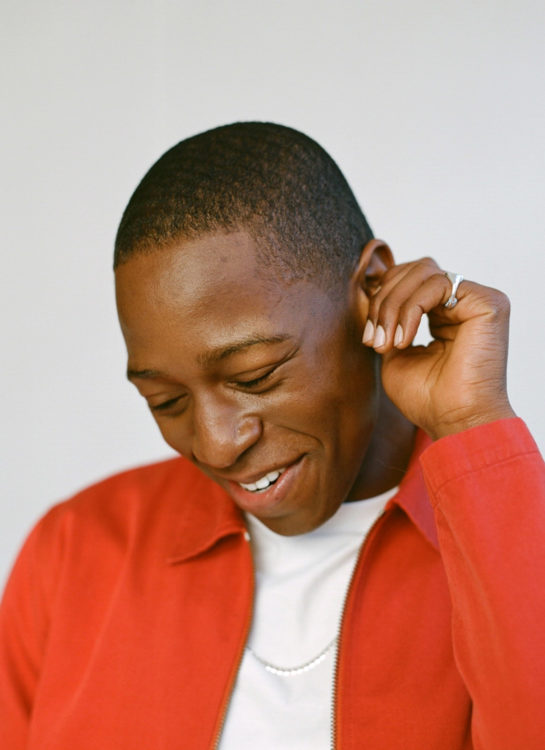
Just to round things up, what do the next few months have in store for you? Is there anything lined up in the calendar that you can share?
When you mentioned theatre, the show that I was doing before is a play called ‘Daddy’. I was playing the lead role in that at the Almeida Theatre. I think that’s coming back round. So hopefully, we should be doing that in the summer as part of the first shows back with full capacity.
That was as Franklin, correct?
Yes. You’ve done your research [laughs]. So hopefully, if it works with something else I’m doing, fingers crossed, I’d love to do that because he’s a really complex character. So, that should be fun. Loads of cool, wonderful stuff. I feel really privileged and blessed.

